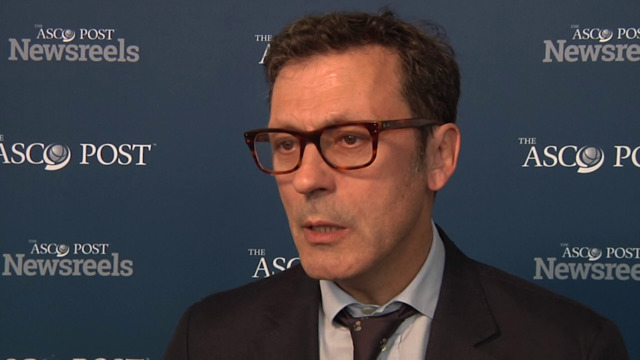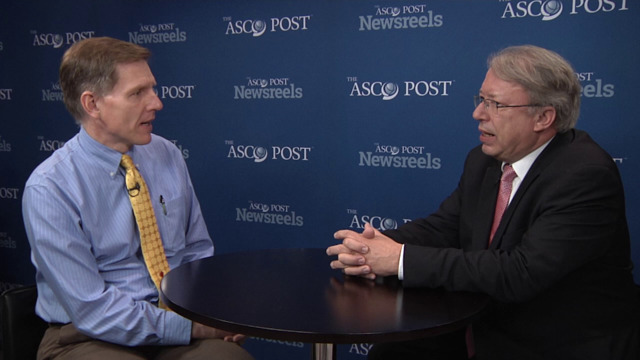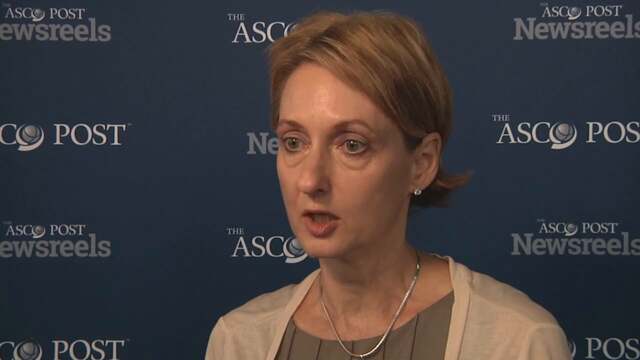Jame Abraham, MD, Summarizes Results From the NeoSphere and ExteNET Trials for Breast Cancer
2015 ASCO Annual Meeting
Jame Abraham, MD, of the Cleveland Clinic discusses analyses of two trials for locally advanced, inflammatory, or early HER2-positive breast cancer using docetaxel, trastuzumab, pertuzumab, and neratinib (Abstracts 505 and 508).
Related Videos
Andrew James Martin, PhD, and Anthony J. Olszanski, RPh, MD
Andrew James Martin, PhD, of NHMRC Clinical Trials Centre, University of Sydney, and Anthony J. Olszanski, RPh, MD, of Fox Chase Cancer Center, discuss a form of vitamin B3 that reduced the incidence of new nonmelanoma skin cancers in high-risk patients (Abstract 9000).
Luis G. Paz-Ares, MD, PhD
Luis G. Paz-Ares, MD, PhD, of the Hospital Universitario Doce De Octubre, discusses the superior overall survival in patients taking nivolumab vs docetaxel in advanced nonsquamous NSCLC (Abstract LBA109).
Claus Garbe, MD, and Anthony J. Olszanski, RPh, MD
Claus Garbe, MD, of the University of Tuebingen, and Anthony J. Olszanski, RPh, MD, of Fox Chase Cancer Center, discuss the survival of sentinel lymph node-positive melanoma patients with and without complete lymph node dissection (Abstract LBA9002).
Christopher Sweeney, MBBS
Christopher Sweeney, MBBS, of Dana-Farber Cancer Institute discusses the EnzaMet and EnzaRad study designs, eligibility requirements, and endpoints (Abstracts TPS5077 and TPS5078).
Laurie H. Sehn, MD, MPH
Laurie Helen Sehn, MD, MPH, of the British Columbia Cancer Agency, discusses a first-ever finding on obinutuzumab and bendamustine in the setting of rituximab-refractory indolent non-Hodgkin lymphoma (Abstract LBA8502).





